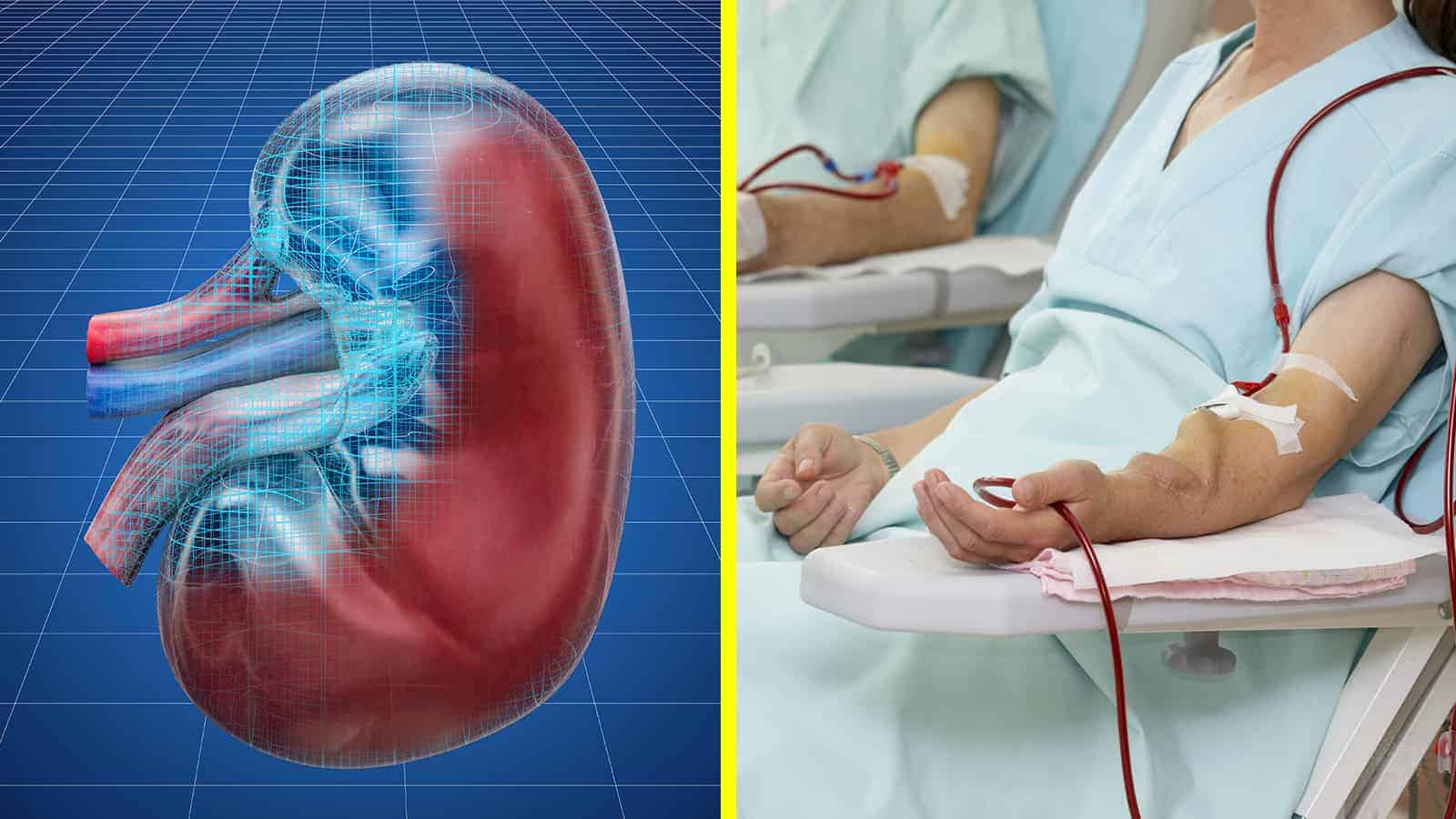When you see the doctor, you may wonder why they ask many seemingly unrelated questions, especially regarding your parents’ health. If you feel particularly miserable during your doctor’s visit, these questions may downright annoy you. The questions they ask about your parents’ health reveal risk factors for you, however.
These risk factors can help the doctor rule out certain conditions or illnesses. Plus, they can be indicators that you may need testing on a particular part of your body. Likewise, the doctor may help you prevent the development of certain diseases if you are at risk.
What the Questions About Your Parents’ Health Reveal to Your Doctor
You should trust that your doctor is asking these questions about your parents for a good reason. They are only trying to be the best doctor that they can be for you. Part of this is knowing the full extent of yours and your parent’s health history.
1. Oral Health

Some genes link to increased cavities in adult teeth. Plus, if your parents had gingivitis or periodontal disease, you are more likely to develop it yourself.
If these issues are undiagnosed and untreated, it can lead to tooth loss. Your doctor might ask you to take extra precautions if your parents had oral health issues.
2. Potential for Thyroid Disorder
Thyroid disorder is genetic, and there are two issues you could experience. Hyperthyroidism means your thyroid is overworking, while hypothyroidism means it is underworking. It’s important to know which disorder your parents have so that you can pass the information along to your doctor.
3. Weight Disorders
Your weight, while primarily affected by diet and physical activity, is also influenced by genetics. The genes you inherit, such as appetite, fat storage, and other things are all part of this.
Remember that even if you have an overweight parent, you don’t have to be overweight. Even though your genes play a large role, you can make healthier decisions and live a healthy lifestyle. Be sure to be active regularly, eat healthy food, and keep your stress in check.
Eating disorders such as anorexia and bulimia are also hereditary. Most people who suffer from these eating disorders have a flawed gene that confuses their appetite control. There is help for overcoming this, and it’s essential to seek professional assistance if you are suffering.
4. Mental Health Issues
Mental health issues are genetic, and if your parents suffered from it, you have an increased risk. This increased risk isn’t small, either, as it’s between 11 and 18%, according to the National Institute of Mental Health.
Depression is a commonplace mental health disorder that parents and children will both have. Bipolar disorder is another one that is relatively common to see in both parent and child.
5. Potential Skin Conditions
Skin conditions are hereditary, so it’s common to see the same skin condition in the parent and child. Even acne, as common as it is, is partly due to genetics. While a lack of regular face washing can cause it, as well, genetics plays a huge role.
Common skin conditions, including eczema and psoriasis, are both hereditary. There is also a condition called rosacea that is hereditary. This condition causes the nose and cheeks to become red, swollen, or develop red veins and pimples.
6. Chance of Dementia
Dementia isn’t always hereditary, but there is a gene linked to it. This gene could cause you to develop dementia if your parent had it.
7. Potential Pregnancy Experiences
Most aspects of pregnancy and post-partum issues stem from genetics. The severity of morning sickness is one aspect that is affected. If your mom often experienced morning sickness, you likely will, too.
Unfortunately, your chance of miscarriage can be hereditary, as well. Knowing this risk ahead of time can help you because your doctor will know that you have a potentially high-risk pregnancy.
Your chance of giving birth to fraternal twins is another genetic aspect. Mothers and fathers can both pass this gene to their daughters. It’s important to note that a father having the gene won’t affect the chance of his partner having twins, however.
8. Learning Disabilities
Both genetics and the surrounding environmental factors could play a part in learning disabilities. Even those who are intelligent can experience issues reading, concentrating, or speaking. It all has to do with the manner in which their brains process information, which links to genetics.
The reason this is important for doctors to know is that it can help them rule out other issues. When you are having trouble concentrating, it could be a disability or something life-threatening. Plus, when they know a learning disability is possible, they can help you figure out how to work with it.
9. Stroke Risk
If your parent has had a stroke, your risk is increased. Your doctor needs to know this so that they can watch for red flags in your health. Plus, they will be able to tell you ways to prevent it from happening.
10. Heart-Rhythm Disorders
If your parents have a history of fainting when they are stressed or physically exhausted, it could be a sign. Frequently, fainting on these occasions indicated a heart-rhythm disorder that is genetic.
11. Risk of Kidney Disease
Not all types of kidney diseases are genetic, but many of them are. If your parents suffer from kidney disease, it might be a good idea to be tested, too.
12. Heart Disease
Coronary disease is the number one, leading cause of death in the United States. Because of that, it is vital to be upfront with your doctor if it runs in your family. Many genes contribute to the onset and severity of heart disease. So, the chance of it passing down to you from your parent is relatively high.
Luckily, genetics isn’t the only determining factor. If you have a a higher risk of developing it (and even if you don’t), living a healthy lifestyle can help. Eat nutritious foods, avoid smoking tobacco, and exercise regularly.
13. Reason for Frequent Heartburn
Sometimes heartburn indicates something more than eating spicy foods. There is a hereditary allergy that causes inflammation of the esophagus. This will feel like heartburn or acid reflux and can cause acid reflux if it hasn’t already begun.
14. Chance of Diabetes
Often, it is mistakenly believed that type 2 diabetes is simply caused by a lack of exercise and a low diet. This isn’t true, however, because much of the development of this disease has to do with genetics. Just remember that most diseases and conditions that you may inherit can be avoided by living a healthy lifestyle.
15. Cancer Risk
Cancer is, unfortunately, often linked to genetics. If your mother had breast cancer, then your risk is higher. Your doctor will be able to tell you what to watch for and how often you need to have screenings done.
Additionally, those with red hair and fair skin have a higher risk of developing melanoma. UV exposure plays the most significant role in this type of cancer. So, avoid getting sunburned even if you don’t fit the characteristics mentioned before.
16. Asthma and Allergies
Allergies and asthma both run in families. Some of it has much to do with genetics, but sometimes it’s environmental.
Food and seasonal allergies tend to be hereditary, which medication allergies aren’t. Even still, if your parent has a medication allergy, always mention it to your doctor. It’s better to be safe than for something to go overlooked.
17. Cholesterol Levels
While it’s true that often high cholesterol is the result of poor diet and exercise, it can also be hereditary. If your parents have high cholesterol, your body may have trouble metabolizing cholesterol.
When high cholesterol is genetic, it can cause an early onset of heart disease. If your doctor knows about your family history, they can help you reduce the risk. Plus, if you get treatment soon enough, some of the damage that has already occurred can be fixed.
18. Early Onset Menopause
Most women don’t experience menopause until they are at least 45 years old. If menopause happens before a woman turns 40, it is considered early menopause. This condition is hereditary, so if it happened to your mother, it might happen to you, too.
Other factors that play a role in early menopause include cancer treatments, smoking, and obesity. Those who have epilepsy tend to get early menopause more often, too.
19. Headaches
Random headaches are normal, and everyone experiences them. When you get frequent headaches or migraines, however, it could be linked to genetics.
This will help your doctor know the cause of your headaches or migraines. If it is hereditary, they may not need to do as many tests to determine the problem. Conversely, if you have no family history of headaches or migraines, something more serious may be occurring.
20. Natural Body Type
You’ve heard of an hourglass or pear-shaped figure, but you likely haven’t heard that it is genetic. Even a muscular body type can be hereditary. Your inherited body type may require less or more physical activity to tone and build muscles.
This is an easier genetic factor to see than most, as you can simply look at your parents to know. If your parents are overweight, you might have a gene that makes it more likely for you to be, too. This does not mean you are, for sure, going to be overweight. You may have to be more health-conscious.
21. Chance of Addiction
Unfortunately, addiction can be hereditary. About half your risk of addiction comes from your parents, so if they are addicts, you should be especially careful. This is true for both drugs and alcohol.
22. Vision and Eye Health
There are genes for every aspect of your vision and eye health. Color-blindness for the colors red and green are genetic, as well, and are found on the X chromosome. Women have two X chromosomes, which is why they are less often color blind than men, who only have one.
23. Digestive Disorders
Digestive disorders are commonly linked to genetics. One of these disorders is celiac disease, which causes gluten to damage the intestines. The symptoms of this disorder include weight loss, osteoporosis, fatigue, depression, headaches, or migraines.
Luckily, there is a blood test that can detect celiac disease. If your doctor knows your parent suffered from it, they’ll be more likely to test you sooner than later.
24. Bone Health
Osteoporosis is linked to genetics, as well. If either of your parents has low bone density, you should start taking action now.
Increasing your Vitamin D and calcium intake can help you prevent the occurrence of osteoporosis and bone fractures. Additionally, often exercising by walking or doing strength training can help.
25. Risk of Alzheimer’s Disease
There are a few different genes that can determine your risk of developing Alzheimer’s disease. This is why children of parents with Alzheimer’s have such a high risk of developing it themselves.
 Final Thoughts on Things the Questions About Your Parents’ Health Reveal to Your Doctor
Final Thoughts on Things the Questions About Your Parents’ Health Reveal to Your Doctor
Doctors mustn’t skip past the part about your parents’ health history. They could miss something important when diagnosing you, or they may not know to watch for a condition. To further explain how important this is, it’s important to know what the questions about your parent’s health reveal.
The next time a medical practitioner at Functional Medicine Associates begins asking questions about your parents’ health history, remember these reasons. They are only trying to determine your risk factors and help you live a healthier life.





















